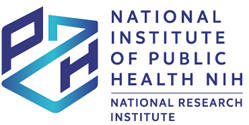ABSTRACT
Autism spectrum disorders (ASDs) are an early-onset neurodevelopmental disorders. The key symptoms of ASD include social deficits, verbal and non-verbal communication deficits, and restricted, repetitive patterns of behaviour, interests, or activities. Dietary patterns have been evidenced to be related to maternal nutritional status that might lead to different metabolic conditions, and maternal metabolic dysfunction has been observed to be associated with ASD. Furthermore growing evidence suggests that the gut microbiota has a role in the pathophysiology of ASD. Differences in composition of the gastrointestinal (GI) microbiota in children with ASD compared to unaffected siblings and/or healthy unrelated controls have been reported in various studies. The above-mentioned ASD factors and symptoms can be regulated by proper nutrition. The importance of nutrition and its possible impact on ASD patients is key to integral therapy. According to numerous research studies, various nutritional approaches succeeded in reducing the severity of patients' core ASD symptoms. The numerous options for diet that is used in the ASD therapy, as described in the scientific literature, are related to the problem of choosing an appropriate nutritional treatment. Each nutrition programme needs to be personalised and tailored to an individual patient. The aim of the paper is to review the available literature on dietary interventions in children with ASD and provide up-to-date evidence.
STRESZCZENIE
Zaburzenia ze spektrum autyzmu (ASD) są zaburzeniami neurorozwojowymi o wczesnym początku. Kluczowe objawy ASD obejmują deficyty społeczne, deficyty komunikacji werbalnej i niewerbalnej oraz ograniczone, powtarzalne wzorce zachowań, zainteresowań lub czynności. Udowodniono, że wzorce żywieniowe są powiązane ze stanem odżywienia matki, co może prowadzić do różnych stanów metabolicznych, a zaburzenia metaboliczne u matki są powiązane z ASD.
Coraz więcej dowodów sugeruje, że mikroflora jelitowa odgrywa rolę w patofizjologii ASD. W różnych badaniach donoszono o różnicach w składzie mikroflory przewodu pokarmowego (GI) u dzieci z ASD w porównaniu ze zdrowym rodzeństwem i/lub zdrowymi, niespokrewnionymi grupami kontrolnymi. Czynniki i objawy ASD można regulować poprzez odpowiednie odżywianie. Znaczenie żywienia i jego możliwy wpływ na pacjentów z ASD jest kluczem do integralnej terapii. Zgodnie z licznymi badaniami naukowymi, różne podejścia żywieniowe odniosły sukces w zmniejszaniu nasilenia podstawowych objawów ASD u pacjentów. Strategie postępowania dietetycznego stosowane w terapii ASD, opisane w literaturze naukowej, wiążą się z problemem wyboru odpowiedniego leczenia żywieniowego. Każdy program żywieniowy musi być spersonalizowany i dostosowany do indywidualnego pacjenta.
Celem pracy jest przegląd dostępnej literatury na temat interwencji dietetycznych u dzieci z ASD i dostarczenie aktualnych danych naukowych.
Możesz zmienić ustawienia cookies w swojej przeglądarce. Ograniczenie stosowania plików cookies w konfiguracji przeglądarki może wpłynąć na niektóre funkcjonalności dostępne na stronie.



